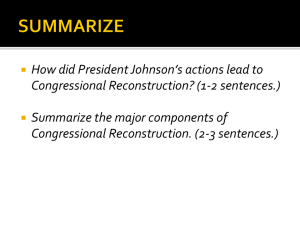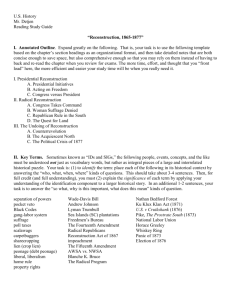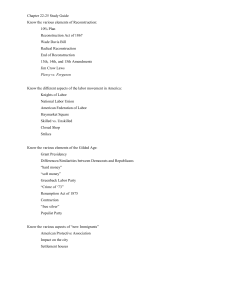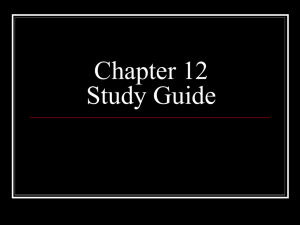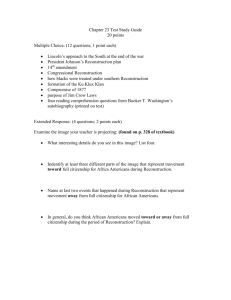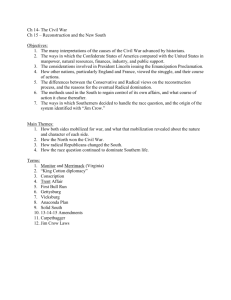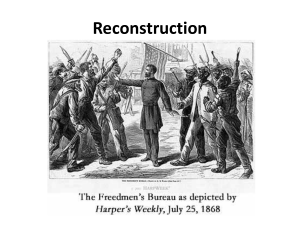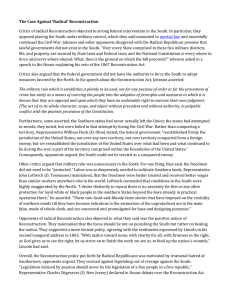Chapter 15: Objectives
advertisement
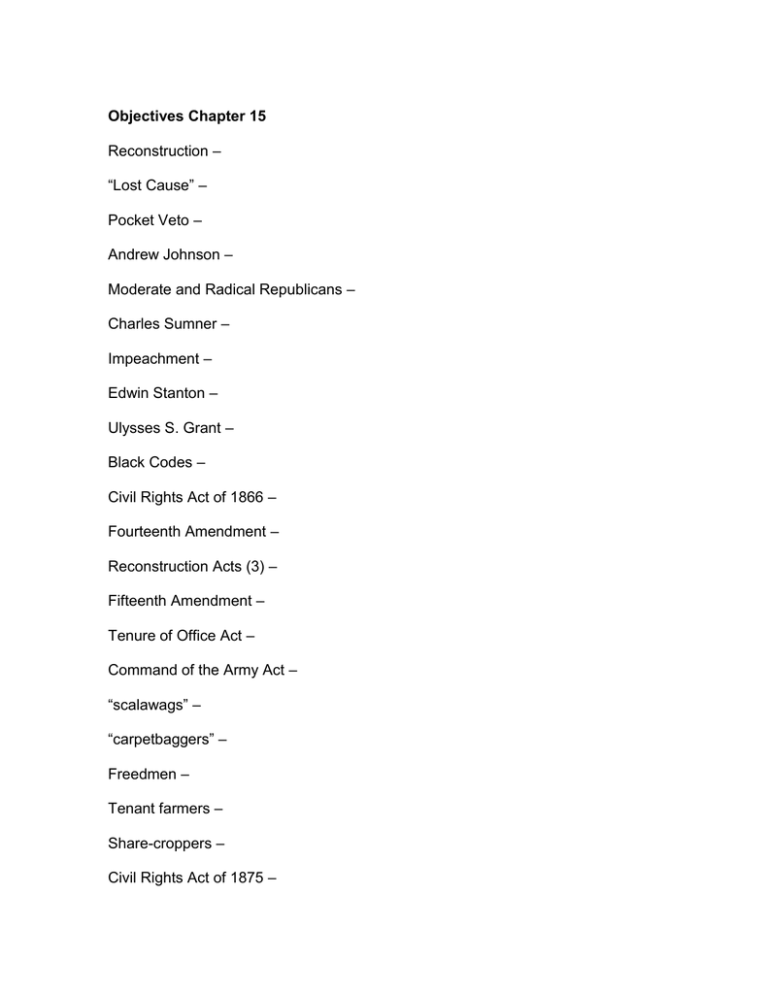
Objectives Chapter 15 Reconstruction – “Lost Cause” – Pocket Veto – Andrew Johnson – Moderate and Radical Republicans – Charles Sumner – Impeachment – Edwin Stanton – Ulysses S. Grant – Black Codes – Civil Rights Act of 1866 – Fourteenth Amendment – Reconstruction Acts (3) – Fifteenth Amendment – Tenure of Office Act – Command of the Army Act – “scalawags” – “carpetbaggers” – Freedmen – Tenant farmers – Share-croppers – Civil Rights Act of 1875 – Freedmen’s Bank (1865-1874) – Greenbacks – Grant v. Greeley – Schuyler Colfax – Election of 1868 (P) – Election of 1872 (P) – Patronage and civil service reform – Crédit Mobilier & Union Pacific Whiskey Ring – Panic of 1873 – Specie Resumption Act (1875) – National Greenback Party (1875) – “Seward’s Folly” (1867) – Alabama Claims – Treaty of Washington (1871) – Ku Klux Klan / Ku Klux Klan Acts – Rutherford B. Hayes – Samuel J. Tilden – Social Darwinism – Slaughterhouse Cases (1873) – Election of 1876 – Compromise of 1877 – “New South” – Convict-lease system – Debt peonage – Crop lien system – Jim Crow – Disfranchisement – Poll taxes/ Literacy tests/ grandfather clauses – “Redeemers”/ “Bourbons” – “Readjusters” – Henry Grady – Booker T. Washington – Ida B. Wells – Tuskegee Institute – Atlanta Compromise – Mississippi Plan – Civil Rights Cases of 1883 – Plessy v. Ferguson “Separate but equal”– Cumming v County Board of Education (1899) Anti-lynching movment – Short Answer 1. Describe the conditions in the former Confederacy after Appomattox that would have made most difficult any attempt at genuine reconstruction. 2. The differences between the Conservative and Radical views on the reconstruction process, and the reasons for the eventual Radical domination. 3. Attempts by the Radical Republicans to expand power and infringe upon the other branches of government. 4. Radical Reconstruction in practice, and Southern (black and white) reaction to it. 5. The debate among historians concerning the nature of Reconstruction, its accomplishments and its shortcomings. 6. The national problems faced by President Ulysses S. Grant, and the reasons for the lack of success as chief executive. 7. The greenback question, and how it reflected the postwar financial problems of the nation. 8. The reasons for the failure of the South to develop a strong industrial economy after Reconstruction. 9. The ways in which Southerners decided to handle the race question and the origin of the system identified with “Jim Crow.”
